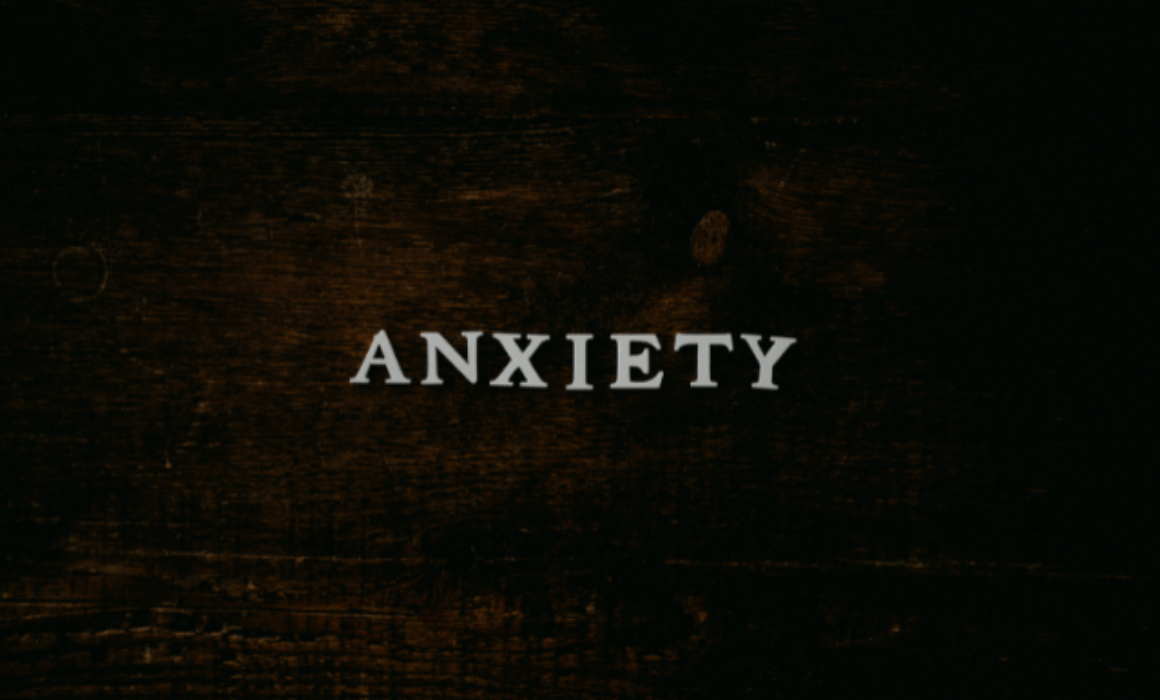
It is common for people who are going through cancer treatment, or who’ve finished cancer treatment, to suffer from some form or other of emotional difficulty at some point along the way. And it’s totally okay to admit that you are one of them. And importantly, it’s absolutely okay not to be okay.
These emotional issues can also be called “mental health issues” but you don’t need to worry about that label. The spectrum of problems ranges in severity and intensity: some of these problems have specific labels like anxiety, depression, panic attacks and PTSD. But for many people, labels are irrelevant – all they know is that they are struggling on an emotional level and they don’t know what to do about it. They feel tired, unhappy, scared, anxious, overwhelmed, fearful, sad, confused, hesitant… the list goes on.
We’ve put together this article on the basis of our own experience as patients and on the basis of our research into some techniques and strategies for helping your emotional and mental health during/after cancer treatment. We’ve also set out signposts to plenty of excellent online resources. These techniques and strategies won’t work for everyone and they will not miraculously sort out all your problems. But they are a starting point. It’s important that everyone should speak to their medical team (oncologist, breast care nurse or GP) if they are struggling.
The tips here apply whether you’re going through treatment, living with cancer or you’ve finished your treatment.
Mindfulness
There is a lot that we could say about mindfulness. It can be an incredibly helpful tool for dealing with anxiety and similar issues. It is all about focusing on your breath and staying in the present moment rather than thinking ahead to the future or back to the past. You could try this very simple exercise:
- Sit somewhere quiet where you won’t be disturbed, maybe facing a window or even do this outside. Turn off your phone.
- Put your hand on your tummy.
- Take a few deep breathes in and out, focusing on your breathing.
- Look around you – what can you see, smell, hear and feel? Name four things you can see, hear, feel and smell.
- Remind yourself that you are here in this moment, in the present.
- Don’t think about the past – you can’t change what has happened.
- Don’t think about the future – stop thinking about all those “what-if” scenarios.
- Bring yourself into the present and focus on the here and now.
You can do this whenever you feel overwhelmed, worried, panicked or fearful. Just take 10 minutes to yourself and bring yourself back into the present.
Links to further resources:
- Future Dreams have a mix of in person and online mindfulness workshops. Check out this page.
- Maggies have a good selection of relaxation videos to choose from.
- Go on YouTube and search “mindfulness”. This brings up loads of guided mindfulness recordings that you can choose from to listen to at home.
- The NHS has a page on mindfulness resources
- Trekstock give a year’s free subscription to Headspace for people in their 20s and 30s with cancer.
- www.cancer.net have an excellent article called “How mindfulness helped me cope with cancer”
- www.mindful.org have an excellent article called “Why cancer survivors need mindfulness” which you can read here.
- Try places like Headspace and Calm which you can subscribe to and which provide you with daily mindfulness sessions by way of Apps on your phone.
- Read Laura’s personal story about how mindfulness has helped her (trigger warning, this is also about being diagnosed with secondary breast cancer).
Talking
Talking about what has happened to you and how you are feeling can help to bring the anxiety and other unpleasant emotions out of your head and your heart and out into the open. The old saying, “it’s better out than in” definitely has something to it. So, who can you talk to?
- To a counsellor, therapist, support group or other people who’ve been where you’ve been.
- Ask your breast care nurse for a recommendation of whom you could to talk to. The hospital may be able to refer you for counselling of some description, either in the hospital or to a local support centre. Don’t be embarrassed about asking.
- At Future Dreams we host lots of workshops, coffee mornings, exercise classes and other events where you’ll meet people in a similar situation to you. Some of these are online and others are in person at the Future Dreams House in London. Check out this page for more information.
- There are plenty of people on social media who are in the same position as you, and who are all talking to each other: giving support, advice and encouragement. Twitter and Instagram are good place for chatting to like-minded people – just do a search for ‘breast cancer’ and you’ll be faced with a huge array of people to follow and chat to. And if you’re under 45 years old and based in the UK you can join the Young Breast Cancer Network Group on Facebook.
- There are plenty of local support groups at local cancer centres (to help you find one near you, here are some links to the location pages of the national cancer support charities: Macmillan and Maggies). There are also lots of independent local centres that your hospital and breast care nurse will be able to tell you about. In addition to offering one-on-one therapy sessions, these centres often offer group sessions. These may not sound as appealing as a one-on-one session, but if it’s an option, then it’s worth trying it out. You may find that being around others who’ve been through the same things to you is actually a benefit.
- Talk to your GP.
Writing
In the same way that talking can help to get something off your chest, writing can also help. And with writing, you don’t need to rely on another person to be around when you feel the need to express your emotions – you can keep a notebook to jot down thoughts at any time of day or night, or you can keep a detailed journal about your feelings. Express your inner feelings of anger, sadness or fear by writing them down. You could even write on pieces of paper that you burn (very carefully) or rip up onto tiny shreds, in order to give yourself some sort of release from those thoughts.
For tips on how to start writing – take a look at this article: Using writing as a therapy and to help others.
See this article, Writing Tips to Help You Through Cancer by Allie Morgan, confidence coach.
At Future Dreams we run a couple of different writing workshops. Sometimes these are online and sometimes they are held in in person at the Future Dreams House in London. Check out this page for more information.
Exercise, keeping busy and fresh air
All of these things are apparently known to help with helping the mental health of a cancer patient or someone who is trying to move on after the end of treatment. It makes sense – the more time that you are distracted by exercise or keeping yourself busy, the less time you have to think about cancer. Of course, this won’t cure all mental health problems, but it might help.
- If you’re not much of an exerciser already, start off with some gentle walks building up the distance over time and perhaps introducing running if you are comfortable with that – you might want to take professional advice if you’re keen to start running (walking and running have the added bonus of fresh air and vitamin D).
- Check out your local gym.
- Ask your local cancer support centre for suggestions about taking up some exercise.
- Try anything that keeps you busy and engaged, such as reading, taking up new hobbies and gardening.
We have more information about how to get started and the benefits of exercise on this page of the website.
Life coaching
Life coaching is a little bit like talking to a therapist, but the focus is on actively taking steps to take back control of your life. Often, people who’ve finished treatment for cancer find it helpful to speak to a life coach or take a course with a life coach. This is something that you will often have to pay for (although some charities put on courses – see below). There are plenty of good free resources online and plenty of people who you can follow on social media for tips and advice. Look around for a free course taking place near you. Some of the local cancer support centres put on moving on courses for people who have finished treatment (for example, your local centre might put on a Macmillan Hope course) and lots of the breast cancer and cancer charities provide moving on courses, for example, Maggies and Breast Cancer Now. Future Dreams also puts on coaching courses. Some of these are online and others are in person at the Future Dreams House in London. Check out this page for more information.
Relaxation techniques and affirmations
Again, relaxing is not going to miraculously cure all mental health issues, but using relaxation techniques on a regular basis can help your emotional state. Have a look at our page with relaxation tips for more information and signposts to helpful resources. In brief, our advice is to:
- Ask your local cancer centre if they offer things like reflexology, acupuncture, massage, reiki or yoga for free of charge. Penny Brohn UK have a particularly good selection of courses to choose from, they provide services online so you can access them from wherever you are based.
- Future Dreams offer some treatments. Some of these are online and others are in person at the Future Dreams House in London. Check out this page for more information.
- YouTube have a great selection of guided mediations and guided mindfulness recordings. There are also plenty of phone Apps that you can download.
- Some people find it helpful to say daily affirmations to encourage positive thinking throughout the day. The attraction of affirmations is that they enable you to actively pursue a particular line of thinking. You can set your own affirmations like, “today I am grateful for X” or “I am healthy and happy“. Or you can look online for suggestions – for example type “affirmations for mental health” into Pinterest and it brings up loads of suggestions.
Sleep
Getting enough sleep is essential to support your mental health. However, of all the times in your life when you want and need a good night sleep, during and after cancer is the time when it is sometimes really difficult to sleep. However, the research all points to the following ways as helping to get a better night sleep:
- Don’t look at your screens before bed.
- Try to have the same bed time each night.
- Avoid caffeinated drinks like tea and coffee for a good few hours before bed.
For more sleep advice, have a read of these three articles:
- www.helpguide.org have a great selection of articles on getting better sleep.
- www.sleepfoundation.org also have lots of brilliant tips for sleeping better.
- This is an excellent article from Mind.org.uk on healthy sleep.
Control
It’s a well-known fact that going through cancer can make you feel like you are not in control of your life. And feeling out of control can contribute to feelings of being overwhelmed and anxious. So, taking steps to regain an element of control in your life might help counter some of these unpleasant feelings.
- Take back control of home life by gradually doing more of the household chores at your own pace. If you suffering from fatigue or other physical side effects remember not to push yourself. A manageable to-do list might help.
- Take back control of your working life by returning to work if you haven’t been working throughout treatment. Speak to your employer about phasing you back in.
- Take control of your social life. If you’ve not been doing much socially during treatment, start to arrange a few meet-ups, coffees, early dinners out. Remember not to push yourself or do more than you can physically cope with. Just having a chat to a friend on the phone could make you feel better (and you don’t need to talk about cancer).
- Take control of what is happening or just happened. Go through your medical notes, make sure you diarise any follow up appointments or make a diary note of when you expect to hear about your next appointment so that you can follow up if you haven’t heard.
Useful links and resources on coping with anxiety and other mental health issues
Why am I feeling this way – what can I read about mental health and cancer?
- About fear, anxiety and panic, CRUK
- Cancer Survivors: Managing your emotions after cancer treatment, Mayo Clinic article
- Dana Farber Cancer Institute have some good articles including one entitled, ” Your Emotions After Treatment” (have a search of their site).
- After The Treatment Finishes, Then What? Dr Peter Harvey and Dr Jane Clark wrote a number of articles about moving forward after cancer treatment that Dr Jane Clark has recently updated (January 2021) for our website – check out our Life After Cancer section.
- Karin Sieger’s website has lots of information and advice.
- Read about Kings College research into breast cancer and resilience and Dr Colette Hirsch’s advice for building resilience during and after breast cancer.
Where can I read about how other people cope with anxiety during and after cancer?
- Lots of the personal stories on this website cover how people deal with and manage mental health issues arising from a cancer diagnosis.
- Anxiety, Anger, Grief and Cancer, Juliet Fitzpatrick
- The Emotional and Mental Impact of Cancer – What to Expect, Karin Sieger
- The Mental Challenge of Breast Cancer Kaeti Breward
Other help and resources
- Anxiety Q&A with Emily Hodge, MSc Health Psychology, Accredited Coach and Therapist, Trekstock
- Trekstock have a brilliant selection of videos on anxiety and cancer
- Shine Cancer Support have a video, blog posts and podcasts all covering anxiety – take a look at their Anxiety and Depression page.
- The Blurt Foundation is a social enterprise dedicated to helping those affected by depression. The have a brilliant website with loads of resources.
- The BRiC Centre‘s research aims to reduce the traumatic impact of diagnosis and harsh treatments including the classic chemo brain which is associated with anxiety and depression, to better the quality of life of women with breast cancer.
- Macmillan have a stack of information and advice about dealing with anxiety and cancer.
- MacMillan off 6 free counselling session with BUPA – Free specialist counselling for people with cancer | Macmillan Cancer Support
- Managing stress and anxiety, Breast Cancer Now
- 10 Tips for Managing Cancer-Related Stress and Anxiety, Dana- Farber Cancer Institute
- Blurtitout.org A website with many many resources for people suffering from anxiety and depression
- Karin Sieger’s website provides loads of helpful resources like videos, blogs and articles
- Some local gyms/leisure centres offer support in returning to exercise such as FreshStart | Mytime Active (Bromley) and Healthwise Physical Activity Referral | Better UK (Camden)
- Mind is a charity that provides support to those experiencing mental health issues.
Further information
Future Dreams hold a range of support groups, classes, workshops and events to help you and your carers during your breast cancer diagnosis. These are held both online and in person at the London-based Future Dreams House. To see what’s on offer and to book your place, see here.
To return to the homepage of our Information Hub, click here where you can access helpful information, practical advice, personal stories and more.
Reviewed February 2023
The information and content provided on this page has been written from a patient’s perspective then reviewed by a breast care nurse and it is intended for information and educational purposes only. It is not intended to substitute for professional medical advice. Please contact your medical team for advice on anything covered in this article. The links and/or recommendations in this article to third-party resources are for your information and we take no responsibility for the content contained in those third-party resources.
Share

Support awareness research
Donate to those touched by BREAST cancer
Sylvie and Danielle began Future Dreams with just £100 in 2008. They believed nobody should face breast cancer alone. Their legacy lives on in Future Dreams House. We couldn’t continue to fund support services for those touched by breast cancer, raise awareness of breast cancer and promote early diagnosis and advance research into secondary breast cancer without your help. Please consider partnering with us or making a donation.




